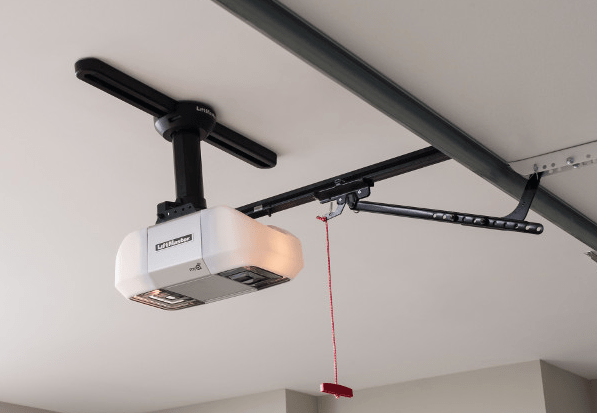Are you wondering about the life expectancy of your garage door opener and how long it will last? Understanding the factors that influence the lifespan of garage door openers can help you make informed decisions about maintenance and replacement. In this guide, we’ll explore the garage door opener life expectancy and provide insights into maximizing its longevity.

Factors Affecting Garage Door Opener Life Expectancy
1. Quality of Components
The quality of the components used in manufacturing the garage door opener plays a significant role in its lifespan. High-quality materials and durable construction can contribute to a longer-lasting opener compared to cheaper alternatives.
2. Frequency of Use
The frequency at which you use your garage door opener can impact its lifespan. A garage door opener that is used multiple times a day is likely to experience more wear and tear than one that is used sparingly. However, modern garage door openers are designed to withstand frequent use for many years.
3. Maintenance Practices
Regular maintenance is essential for prolonging the life of your garage door opener. This includes lubricating moving parts, inspecting and tightening hardware, and testing safety features. Neglecting maintenance can lead to premature wear and failure of critical components.
4. Climate and Environmental Conditions
The climate and environmental conditions in which your garage door opener operates can affect its longevity. Extreme temperatures, humidity, and exposure to moisture or corrosive elements can accelerate wear and deterioration of components. Proper insulation and protection can help mitigate these effects.
Read too: No Power to Genie Garage Door Opener – Resolving the Issue with Ease: Troubleshooting Guide
5. Installation Quality
The quality of the installation also plays a role in determining the lifespan of a garage door opener. A professionally installed opener with proper alignment and adjustment is more likely to function optimally and last longer than one that is improperly installed.
Garage Door Opener Life Expectancy: What to Expect
The typical lifespan of a garage door opener can vary depending on the factors mentioned above. On average, a well-maintained garage door opener can last anywhere from 10 to 15 years. However, some openers may last longer with proper care and maintenance, while others may require replacement sooner.
Tips for Prolonging Garage Door Opener Lifespan
1. Perform Regular Maintenance
Follow the manufacturer’s recommendations for maintenance, including lubricating moving parts, checking for worn components, and testing safety features regularly.
2. Keep it Clean and Lubricated
Clean the garage door tracks and components regularly to remove debris and dirt buildup. Apply lubricant to moving parts such as rollers, hinges, and springs to reduce friction and wear.
3. Address Issues Promptly
Address any issues or malfunctions promptly to prevent further damage and extend the lifespan of your garage door opener. If you notice unusual noises, slow operation, or other signs of trouble, consult a professional for inspection and repair.
4. Consider Professional Inspection
Periodically schedule a professional inspection of your garage door opener to identify potential problems and ensure it is operating safely and efficiently.
Conclusion
Understanding the factors that influence garage door opener life expectancy is essential for maximizing its longevity. By following proper maintenance practices, addressing issues promptly, and investing in high-quality components, you can ensure that your garage door opener continues to function reliably for years to come.



Leave a Reply